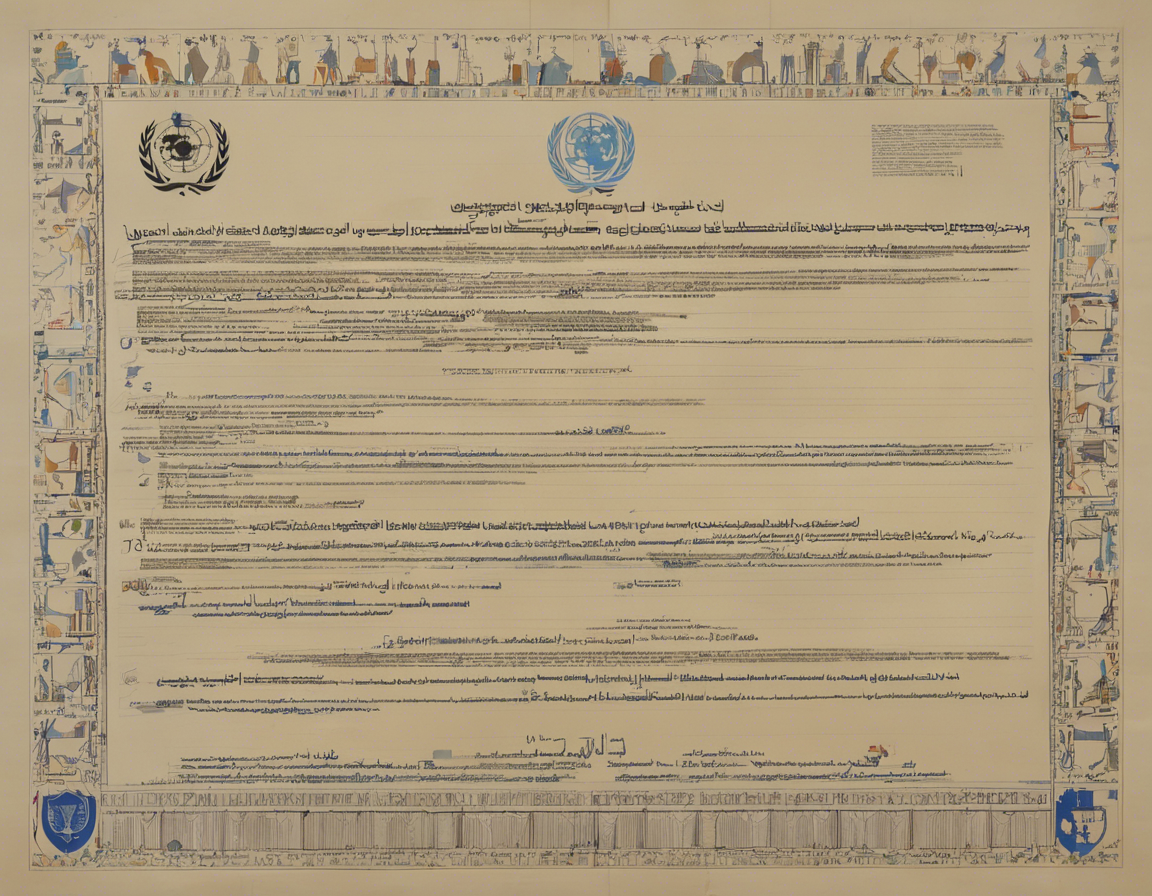The relationship between Israel and the United Nations (UN) Charter is a complex and often contentious one that has been marred by decades of conflict and disagreement. From the establishment of the State of Israel in 1948 to present-day geopolitical tensions, this article aims to provide a comprehensive overview of how Israel’s relationship with the UN Charter has evolved over time.
The Establishment of Israel and UN Resolution 181
In 1947, the UN General Assembly adopted Resolution 181, also known as the Partition Plan for Palestine, which called for the establishment of independent Arab and Jewish states in the region. The resolution was accepted by the Jewish leadership but rejected by Arab nations, leading to the Arab-Israeli War in 1948 and the subsequent establishment of the State of Israel.
Israel’s Admission to the United Nations
On May 11, 1949, Israel was admitted as a member state to the United Nations, marking a significant milestone in its diplomatic recognition by the international community. This acceptance came with certain obligations, including adherence to the principles and purposes of the UN Charter.
Challenges and Disputes
Despite its UN membership, Israel’s relationship with the organization has been marked by numerous challenges and disputes over the years. One of the key issues is the ongoing Israeli-Palestinian conflict, which has been a recurring topic of discussion and debate at the UN.
Security Council Resolutions
The UN Security Council has issued numerous resolutions related to Israel, including resolutions calling for the withdrawal of Israeli forces from occupied territories and condemning Israeli settlement activities. Israel has often criticized these resolutions as biased and one-sided, citing a lack of recognition of its security concerns and right to self-defense.
Israel’s Position on the UN Charter
Israel maintains that it upholds the principles of the UN Charter, including the promotion of peace, security, and human rights. However, it has also been critical of what it perceives as anti-Israel bias within certain UN bodies, such as the Human Rights Council and the General Assembly.
Israel’s Relations with UN Agencies
Israel has had a mixed relationship with various UN agencies, such as the United Nations Relief and Works Agency for Palestine Refugees in the Near East (UNRWA) and the United Nations Educational, Scientific and Cultural Organization (UNESCO). Disputes have arisen over issues such as funding, politicization, and allegations of anti-Israel bias.
Peacekeeping Missions
Israel has contributed troops to UN peacekeeping missions in countries such as Haiti, Cyprus, and the Democratic Republic of the Congo, demonstrating its commitment to international peace and security. However, it has also raised concerns about the impartiality and effectiveness of certain peacekeeping operations.
Frequently Asked Questions (FAQs)
- Is Israel a member of the United Nations?
-
Yes, Israel became a member state of the United Nations on May 11, 1949.
-
What is Resolution 181 and how does it relate to Israel?
-
Resolution 181, also known as the Partition Plan for Palestine, called for the establishment of independent Arab and Jewish states in the region. It was accepted by the Jewish leadership and led to the creation of the State of Israel.
-
Why does Israel have a strained relationship with the UN?
-
Israel’s relationship with the UN has been strained due to various factors, including the Israeli-Palestinian conflict, Security Council resolutions critical of Israel, and perceived bias within UN bodies.
-
How does Israel contribute to UN peacekeeping missions?
-
Israel has contributed troops to UN peacekeeping missions in several countries as part of its commitment to international peace and security.
-
What is Israel’s position on the UN Charter?
- Israel maintains that it upholds the principles of the UN Charter, including promoting peace, security, and human rights, while also raising concerns about bias against Israel within certain UN bodies.
In conclusion, Israel’s relationship with the UN Charter is a nuanced and multifaceted one that reflects the complexities of the broader geopolitical landscape in the Middle East. Despite challenges and disputes, Israel remains an active member of the United Nations, engaging in diplomacy, peacekeeping efforts, and international relations within the framework of the UN Charter.



